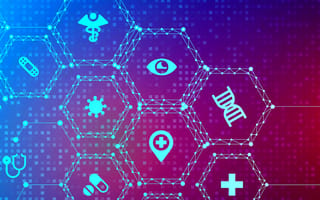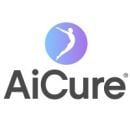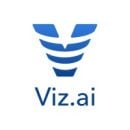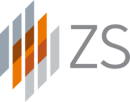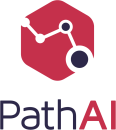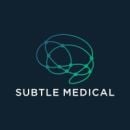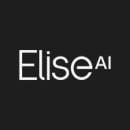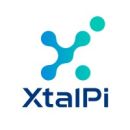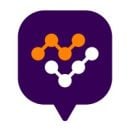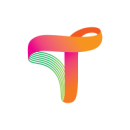Artificial intelligence simplifies the lives of patients, doctors and hospital administrators by performing tasks that are typically done by humans, but in less time and at a fraction of the cost.
AI in healthcare shows up in a number of ways, such as finding new links between genetic codes, powering surgery-assisting robots, automating administrative tasks, personalizing treatment options and much more. One of the newest forms of AI in healthcare is providing consumers with advanced sensing and analytics services. New tools like ChatGPT Health and Claude for Life Sciences are enabling users to connect their health data from wearable devices directly into AI models for hyperpersonalized recommendations and to predict potential health risks.
Uses for AI in Healthcare
- Improving medical diagnosis
- Speeding up drug discovery
- Transforming patient experience
- Managing healthcare data
- Performing robotic surgery
Put simply, AI is reinventing — and reinvigorating — modern healthcare through machines that can predict, comprehend, learn and act.
What Is AI in Healthcare?
AI in healthcare refers to the use of machine learning, natural language processing, deep learning and other AI technologies to enhance the experiences of both healthcare professionals and patients. The data-processing and predictive capabilities of AI enable health professionals to better manage their resources and take a more proactive approach to various aspects of healthcare.
With these technologies, doctors can then make quicker and more accurate diagnoses, health administrators can locate electronic health records faster and patients can receive more timely and personalized treatments.
Examples of AI in Healthcare
To give you a better understanding of the rapidly evolving field, we rounded up some examples and use cases of AI in healthcare.
AI in Personal Health
AI is shifting personal health from reactive to proactive wellness by transforming how we use biometrics collected from wearable devices. Tools like ChatGPT Health and Claude for Life Sciences can now analyze the latest medical studies and real-time biometrics to identify subtle trends — such as sleep or heart rate anomalies — weeks before symptoms appear. By using an individual’s specific biometrics and medical history, AI models provide wellness recommendations tailored to the user's unique profile.
AI in Medical Diagnosis
Every year, roughly 400,000 hospitalized patients suffer preventable harm, with 100,000 deaths. In light of that, the promise of improving the diagnostic process is one of AI’s most exciting healthcare applications. Incomplete medical histories and large caseloads can lead to deadly human errors. Immune to those variables, AI can predict and diagnose disease at a faster rate than most medical professionals.
AI in Drug Discovery
The drug development industry is bogged down by skyrocketing development costs and research that takes thousands of human hours. Putting each drug through clinical trials costs an estimated average of $1.3 billion, and only 10 percent of those drugs are successfully brought to market. Due to breakthroughs in technology, AI is speeding up this process by helping design drugs, predicting any side effects, identifying ideal candidates for clinical trials and potentially reducing costs by up to 50 percent.
AI in Patient Experience
AI can be used to support digital communications, offering schedule reminders, tailored health tips and suggested next steps to patients. The ability of AI to aid in health diagnoses also improves the speed and accuracy of patient visits, leading to faster and more personalized care. And efficiently providing a seamless patient experience allows hospitals, clinics and physicians to treat more patients on a daily basis.
AI in Healthcare Data Management
Highly valuable information can sometimes get lost among the forest of trillions of data points. Additionally, the inability to connect important data points slows the development of new drugs, preventative medicine and proper diagnosis. Because of its ability to handle massive volumes of data, AI breaks down data silos and connects in minutes information that used to take years to process. This can reduce the time and costs of healthcare administrative processes, contributing to more efficient daily operations and patient experiences.
AI in Robotic Surgery
Hospitals use AI and robots to help with everything from minimally invasive procedures to open heart surgery. Surgeons can control a robot’s mechanical arms while seated at a computer console as the robot gives the doctor a three-dimensional, magnified view of the surgical site. The surgeon then leads other team members who work closely with the robot through the entire operation. Robot-assisted surgeries have led to fewer surgery-related complications, less pain and a quicker recovery time. According to the Cleveland Clinic, this type of surgical intervention has greatly advanced over the years, with a 94 to 100 percent success rate.
The Future of AI in Healthcare
While AI is already being used across the healthcare industry, its use is still in an early, specialized stage. According to researchers, current AI systems are considered narrow AI (NAI) — tools designed to perform specific tasks, such as processing numerical data or analyzing images, rather than exhibiting broad, human-like intelligence. Researchers are exploring the potential of artificial general intelligence (AGI), which could eventually expand AI capabilities in the healthcare industry, though this remains largely theoretical.
In the near term, AI is already being used to improve the efficiency and accuracy of healthcare operations. Hospitals and medical facilities are using the technology to manage administrative tasks, answer calls, interpret radiology images, assist in diagnoses and much more. These applications can reduce human error, speed up routine processes and free up human clinicians to focus on the more complex aspects of patient care.
Looking further ahead, the invention of AGIcould shake up the healthcare industry, providing greater personalized care. For instance, an AGI-powered diagnostic tool may be capable of synthesizing a patient’s entire medical history and symptoms to detect early signs of a disease and recommend treatment, identifying signs that may have otherwise been overlooked in traditional evaluations. Meanwhile, on the pharmaceutical side, AGI could accelerate the drug discovery process and tailor treatments to individual patients based on their unique genetic and medical profiles.
However, integrating AI into the healthcare space comes with some significant challenges and drawbacks that will only persist if we don’t do anything about them. Chief among them is data privacy and security, as AI tools require access to large volumes of sensitive patient information. As a result, healthcare organizations have become prime targets for cyberattacks. To mitigate these risks, AI developers are implementing data anonymization techniques, strict encryption standards and compliance measures aligned with HIPAA regulations.
Artificial intelligence also has a propensity for getting things wrong, making it especially risky to use in high-stakes industries like healthcare. AI tools have been known to hallucinate, making up false information, which could lead to misdiagnoses or inappropriate treatment recommendations. They can also amplify biases present in the data they’re trained on, which has historically had an outsized effect on marginalized groups like women and patients of color, who may receive less accurate diagnoses or suboptimal care due to biased algorithms.
These issues will need to be addressed if we want to continue implementing AI into healthcare settings responsibly, requiring rigorous validation of tools’ outputs, consistent monitoring of bias, diverse and representative training data and constant human oversight at every stage of the decision-making process.
While the promise of AI in healthcare is substantial, balancing innovation with patient safety, privacy and ethical considerations will remain critical as the technology evolves.
Companies Using AI in Healthcare
These are some of the companies paving the way for healthcare innovation by applying AI technology.
Location: Boston, Massachusetts
Cohere Health uses AI and machine learning to revolutionize prior authorization processes to ensure patients can access care swiftly. Through its Cohere Unify Platform, health plans can proactively create data-driven care paths, leading to pre-approval for services. By integrating real-time analytics, clinical intelligence and responsible AI, Cohere aligns patients, healthcare providers and health plans. It aims to facilitate stress-free experiences to deliver efficient, quality, cost-effective care.
Location: Denver, Colorado
Strive Health aims to transform kidney disease care through services and technology that prioritize early identification and responses that help lower overall costs. It provides its clients with local providers who use predictive and comparative data to design home-first dialysis options and comprehensive care plans. The Kidney Heroes™, who include nurses, social workers, nurse practitioners, dietitians and care coordinators are trained to understand all intricacies of kidney disease and provide specialized care.
Location: San Francisco, California
Atomwise uses AI to tackle serious diseases, including Ebola and multiple sclerosis. The company’s neural network, AtomNet, helps predict bioactivity and identify patient characteristics for clinical trials. Atomwise’s AI technology screens between 10 and 20 million genetic compounds each day and can reportedly deliver results 100 times faster than traditional pharmaceutical companies.
Location: Conshohocken, Pennsylvania
Cencora aims to improve access to healthcare for both humans and animals. It distributes home healthcare equipment, over-the-counter products and pharmaceuticals. The company says it continues to advance artificial intelligence throughout the organization, applying it to streamline benefit verification, for example, and power analytics that support medication adherence programs.
Location: New York, New York
Flatiron Health is a cloud-based SaaS company specializing in cancer care, offering oncology software that connects cancer centers nationwide to improve treatments and accelerate research. Using advanced technology, including artificial intelligence, it advances oncology by connecting community oncologists, academics, hospitals and life science researchers, providing integrated patient population data and business intelligence analytics. By leveraging billions of data points from cancer patients, Flatiron Health enables stakeholders to gain new insights and enhance patient care.
Location: Armonk, New York
Once known as a Jeopardy-winning supercomputer, IBM’s Watson now helps healthcare professionals harness their data to optimize hospital efficiency, better engage with patients and improve treatment. Watson applies its skills to everything from developing personalized health plans to interpreting genetic testing results and catching early signs of disease.
Location: Boston, Massachusetts
Laudio works to help frontline managers build high-performing teams. The company’s technology leverages AI-powered recommendations to drive targeted managerial actions that help streamline workflows for frontline healthcare workers. Laudio’s goal is to help frontline teams improve efficiency, employee engagement and patient experiences.
Location: New York, New York
Twill describes itself as “The Intelligent Healing Company,” delivering digital healthcare products and partnering with enterprises, pharma companies and health plans to develop products using its Intelligent Healing Platform. The company uses AI to tailor personalized care tracks for managing medical conditions like multiple sclerosis and psoriasis. These individualized programs can include digital therapeutics, care communities and coaching options.
Location: New York, New York
AiCure helps healthcare teams ensure patients are following drug dosage instructions during clinical trials. Supplementing AI and machine learning with computer vision, the company’s mobile app tracks when patients aren’t taking their medications and gives clinical teams time to intervene. In addition, AiCure provides a platform that gleans insights from clinical data to explain patient behavior, so teams can study how patients react to medications.
Location: Peoria, Illinois
VirtuSense uses AI sensors to track a patient’s movements so that providers and caregivers can be notified of potential falls. The company’s products include VSTAlert, which can predict when a patient intends to stand up and notify appropriate medical staff, and VST Balance, which employs AI and machine vision to analyze a person’s risk of falling within the next year.
Location: Fremont, California
Neuralink is a medical device company founded by Elon Musk. The company is developing a brain-computer interface (BCI) system that when implanted can interpret brain activity and restore limb movement for individuals with quadriplegia. The implant uses AI and machine learning to process electrical signals from the brain and interpret them into actions. Neuralink received FDA approval for human trials in 2023 and shortly after found its first human participant.
Location: New York, New York
Kaia Health operates a digital therapeutics platform that features live physical therapists to provide people care within the boundaries of their schedules. The platform includes personalized programs with case reviews, exercise routines, relaxation activities and learning resources for treating chronic back pain and COPD. Kaia Health also features a PT-grade automated feedback coach that uses AI technology.
Location: Toronto, Ontario
Deep Genomics’ AI platform helps researchers find candidates for developmental drugs related to neuromuscular and neurodegenerative disorders. Finding the right candidates during a drug’s development statistically raises the chances of successfully passing clinical trials while also decreasing time and cost to market.
Location: Chicago, Illinois
Tempus uses AI to sift through the world’s largest collection of clinical and molecular data to personalize healthcare treatments. The company develops AI tools that give physicians insights into treatments and cures, aiding in areas like radiology, cardiology, and neurology.
Location: South San Francisco, California
Freenome uses AI in screenings, diagnostic tests and blood work to test for cancer. By deploying AI at general screenings, Freenome aims to detect cancer in its earliest stages and subsequently develop new treatments.
Location: San Francisco, California
Komodo Health has built the “industry’s largest and most complete database of de-identified, real-world patient data,” known as the Healthcare Map. This Map tracks individual patient interactions across the healthcare system, applying AI and machine learning to extract data related to individuals or larger demographics. With this information, healthcare professionals can develop more complete patient profiles while also using categories like race and ethnicity to factor social inequities into a patient’s health history.
Location: Menlo Park, California
Deepcell uses artificial intelligence and microfluidics to develop technology for single-cell morphology. The company’s platform has a variety of applications, including cancer research, cell therapy and developmental biology.
Location: Chicago, Illinois
Prolaio is a healthcare company that leverages AI and a connected platform to improve heart care. Its technology integrates with devices like smartwatches and ECG patches to collect a continuous stream of real-world patient data. The platform uses AI to analyze this data, identifying patterns and early warning signs that help care teams track patient progress and adjust treatment in real time.
Location: New York, New York
Pfizer uses AI to aid its research into new drug candidates for treating various diseases. For example, the company used AI and machine learning to support the development of a Covid-19 treatment called PAXLOVID. Scientists at Pfizer are able to rely on modeling and simulation to identify compounds that have the highest likelihood of being effective treatment candidates so they can narrow their efforts.
Location: Austin, Texas
With the goal of improving patient care, Iodine Software is creating AI-powered and machine-learning solutions for mid-revenue cycle leakages, like resource optimization and increased response rates. The company’s CognitiveML product discovers client insights, ensuriodes documentation accuracy and highlights missing information.
Location: Copenhagen, Denmark
Corti’s platform leverages AI to improve the operations and practices of emergency medical services personnel. A suite of Corti features automatically summarizes emergency calls, speeds up documentation and tracks employee performance. By compiling and analyzing this data, Corti can deliver insights to help teams pinpoint inefficiencies, offer employees tailored feedback and update any call guidelines as needed.
Location: San Francisco, California
In healthcare, delays can mean the difference between life and death, so Viz.ai helps care teams react faster with AI-powered healthcare solutions. The company’s AI products can detect issues and notify care teams quickly, enabling providers to discuss options and provide faster treatment decisions, thus saving lives.
Location: Santa Monica, California
TigerConnect offers a platform designed to unify communications across healthcare operations, with the goal of enabling streamlined collaboration and improving the patient care experience. The technology comes with AI-powered features that providers can use to simplify daily tasks like scheduling.
Location: Mountain View, California
H2O.ai’s AI analyzes data throughout a healthcare system to mine, automate and predict processes. It has been used to predict ICU transfers, improve clinical workflows and pinpoint a patient’s risk of hospital-acquired infections. Using the company’s AI to mine health data, hospitals can predict and detect sepsis, which ultimately reduces death rates.
Location: New York, New York
Marble Health uses a unified, AI-powered platform to streamline mental health care for youth. Its technology supports every stage of care, from automating clinical documentation to assisting therapist decision-making and improving coordination among schools, families and health plans.
Location: Cleveland, Ohio
The Cleveland Clinic teamed up with IBM on the Discovery Accelerator, an AI-infused initiative focused on faster healthcare breakthroughs. The joint center is building an infrastructure that supports research in areas such as genomics, chemical and drug discovery and population health. The collaboration employs big data medical research for the purpose of innovating patient care and approaches to public health threats.
Location: Austin, Texas
Babylon is on a mission to re-engineer healthcare by shifting the focus away from caring for the sick to helping prevent sickness, leading to better health and fewer health-related expenses. The platform features an AI engine created by doctors and deep learning scientists that operates an interactive symptom checker, using known symptoms and risk factors to provide the most informed and up-to-date medical information possible.
Location: New York, New York
Sailor Health offers a platform for senior mental health, citing that seniors have the highest rates of suicide and loneliness, yet receive the least mental healthcare. The AI-native platform allows for real-time clinical insights and seamless care coordination.
Location: Evanston, Illinois
Global consulting firm ZS specializes in providing strategic support to businesses across various sectors, with a particular focus on healthcare, leveraging its expertise in AI, sales, marketing, analytics and digital transformation. ZS helps clients navigate complex challenges within industries such as medical technology, life sciences, health plans and pharmaceuticals, using advanced AI and analytics tools.
Location: San Mateo, California
Caption Health combines AI and ultrasound technology for early disease identification. AI guides providers through the ultrasound process in real time to produce diagnostic-quality images that the software then helps to interpret and assess.
Location: Boston, Massachusetts
PathAI develops machine learning technology to assist pathologists in making more accurate diagnoses. The company’s goals include reducing errors in cancer diagnosis and developing methods for individualized medical treatment. PathAI worked with drug developers like Bristol-Myers Squibb and organizations like the Bill & Melinda Gates Foundation to expand its AI technology into other healthcare industries.
Location: San Mateo, California
Evidation’s mobile app supports users’ health through rewards and education content. It also gives them the option of participating in health research for life sciences companies, government agencies and academic institutions. The company uses AI to support its research partners, developing solutions for applications like notifying users who report flu systems and are in the right geographic location about how to join a clinical trial for a flu treatment.
Location: Madison, Wisconsin
The Accuray CyberKnife system uses AI and robotics to precisely treat cancerous tumors. The technology lets providers personalize stereotactic radiosurgery and stereotactic body radiation therapy for each patient. Using the robot’s real-time tumor tracking capabilities, doctors and surgeons can treat affected areas rather than the whole body.
Location: Menlo Park, California
Subtle Medical uses AI to enhance images for radiology departments. The SubtlePET and SubtleMR products work with the machines a facility already uses to speed up MRI and PET scans while reducing image noise. The software has the potential to shrink wait times by scanning more patients each day.
Location: San Francisco, California
Insitro specializes in human disease biology, combining generative AI and machine learning to spearhead medicine development. The company generates phenotypic cellular data and gathers clinical data from human cohorts for deep learning and machine learning models to comb through. Based on this information, Insitro’s technology can spot patterns in genetic data and build disease models to spur the discovery of new medicines.
Location: Salt Lake City, Utah
Recursion’s operating system accelerates drug discovery and development by generating and analyzing large amounts of in-house biological and chemical data. During experiments, Recursion relies on hardware systems, microscopes and continuous video feeds to collect data for its OS to review. The company has also partnered with NVIDIA to apply generative AI to its methods, making drug development even faster.
Location: Eindhoven, Netherlands
Microsure’s robots help surgeons overcome their human physical limitations. The company’s motion stabilizer system is intended to improve performance and precision during surgical procedures. Its MUSA surgical robot, developed by engineers and surgeons, can be controlled via joysticks for performing microsurgery.
Location: London, England
The primary goal of BenevolentAI is to get the right treatment to the right patients at the right time by using AI to produce a better target selection and provide previously undiscovered insights through deep learning. BenevolentAI works with major pharmaceutical groups to license drugs, while also partnering with charities to develop easily transportable medicines for rare diseases.
Location: Boston, Massachusetts
Developed by a team out of Harvard Medical School, Buoy Health is an AI-based symptom and cure checker that uses algorithms to diagnose and treat illness. Here’s how it works: a chatbot listens to a patient’s symptoms and health concerns, then guides that patient to the correct care based on its diagnosis.
Location: South San Francisco, California
AKASA’s AI platform helps healthcare providers streamline workflows by automating administrative tasks to allow staff to focus where they’re needed. The automation can be customized to meet a facility’s particular needs and priorities, while maintaining accuracy for managing claims, payments and other elements of the revenue cycle.
Location: San Francisco, California
Doximity builds tools to save physicians time. Its offerings include faster literature search capabilities and a privacy-first AI Scribe. The company says users can save over 10 hours a week with support for notes, letters and patient instructions. The technology also provides instant, evidence-based answers backed by guidelines, systematic reviews and peer-reviewed literature.
Location: Boston, Massachusetts
Beacon Biosignals aims to treat neurological and psychiatric diseases through its EEG analytics platform, which utilizes portal reporting, standardized neurobiomarkers and machine learning algorithms that “increase the probability of success at each stage of drug development.” Additionally, population stratification is used to identify various patient populations.
Location: Boston, Massachusetts
Biofourmis connects patients and health professionals with its cloud-based platform to support home-based care and recovery. The company’s platform integrates with mobile devices and wearables, so teams can collect AI-driven insights, message patients when needed and conduct virtual visits. This way, hospitals can release patients earlier and ensure a smoother transition while remotely monitoring their progress.
Location: Austin, Texas
ClosedLoop.ai is an end-to-end platform that uses AI to discover at-risk patients and recommend treatment options. Through the platform, healthcare organizations can receive personalized data about patients’ needs while collecting looped feedback, outreach and engagement strategies and digital therapeutics. The platform can be used by healthcare providers, payers, pharma and life science companies.
Location: Houston, Texas
InformAI offers a suite of AI products for the healthcare field. Its RadOncAI tool uses AI to create a radiation therapy plan, homing in on tumors while limiting cancer patients’ exposure as much as possible. Meanwhile, TransplantAI evaluates donor and recipient data to determine promising matches and support successful organ transplants. And InformAI’s SinusAI product helps health teams more quickly detect sinus diseases.
Location: Philadelphia, Pennsylvania
Proscia is a digital pathology platform that uses AI to detect patterns in cancer cells. The company’s software helps pathology labs eliminate bottlenecks in data management and uses AI-powered image analysis to connect data points that support cancer discovery and treatment.
Location: New York, New York
EliseAI specializes in conversational AI solutions. In the healthcare space, EliseAI offers AI-powered technology that can automate administrative tasks like appointment scheduling and sending payment reminders. Its AI capabilities engage patients across SMS, voice, email and web chat formats.
Location: Framingham, Massachusetts
Definitive Healthcare offers healthcare intelligence software that converts third-party data, secondary and proprietary research into actionable insights. It aims to deliver an organized, searchable and user-friendly platform. The company helps businesses in the healthcare space to market their products to their target audiences.
Location: New York, New York
Formation Bio is a pharmaceutical company that uses AI to develop new and existing drugs. The company uses AI throughout development, manufacturing and marketing. It aims to accelerate drug development pipelines and get new products to patients more efficiently.
Location: New York, New York
Spring Health offers a mental health benefit solution employers can adapt to provide their employees with the resources to keep their mental health in check. The technology works by collecting a comprehensive dataset from each individual and comparing that against hundreds of thousands of other data points. The platform then uses a machine learning model to match people with the right specialist for either in-person care or telehealth appointments.
Location: Los Angeles, California
Regard uses AI technology to diagnose patients. The company describes its automated system to be the clinical “co-pilot” to electronic medical records (EMRs). The data from EMRs is synthesized to discover a diagnosis. Additionally, healthcare providers receive specific recommendations about patient care. The system also updates patient documents automatically to reduce burnout among healthcare workers.
Location: Palo Alto, California
CloudMedX uses machine learning to generate insights for improving patient journeys throughout the healthcare system. The company’s technology helps hospitals and clinics manage patient data, clinical history and payment information by using predictive analytics to intervene at critical junctures in the patient care experience. Healthcare providers can use these insights to efficiently move patients through the system.
Location: Cambridge, Massachusetts
Combining AI, the cloud and quantum physics, XtalPi’s ID4 platform predicts the chemical and pharmaceutical properties of small-molecule candidates for drug design and development. The company’s investors have included Google, Tencent and Sequoia Capital.
Pager Health is a mobile-based platform that connects patients to instant medical care. Its services are available 24/7 and include video chats with in-network medical professionals, along with AI-based chat and appointment scheduling. The company’s connected health platform uses machine learning and artificial intelligence to assist both patients and care teams.
Location: New York, New York
Owkin leverages AI technology for drug discovery and diagnostics with the goal of enhancing cancer treatment. The company’s AI tools help identify new drug targets, recommend possible drug combinations and suggest additional diseases that a drug can be repurposed to treat. Owkin also produces RlapsRisk, a diagnostic tool for assessing a breast cancer patient’s risk of relapse, and MSIntuit, a tool that assists with screening for colorectal cancer.
Location: New York, New York
Global healthtech company RethinkFirst offers cloud-based treatment tools, training and clinical support for educators, employers and behavioral health professionals. Its solutions use evidence-based protocols, workflow automation and advanced data analytics to drive meaningful clinical outcomes. The AI that powers the company’s solutions is built to meet and adapt to regulatory standards like HIPAA, HITECH and FERPA, with a priority on protecting user data.
Location: Philadelphia, Pennsylvania
Oncora Medical aids oncologists in cancer research and prevention. During patient consultations, the company’s platform automates notetaking and locates important patient details from past records, saving oncologists time. Oncora’s platform also comes equipped with machine learning models that can identify high-risk individuals and determine when patients are eligible to participate in clinical trials.
Location: Baltimore, Maryland
Johns Hopkins Hospital partnered with GE Healthcare to use predictive AI techniques to improve the efficiency of patient operational flow. A task force, augmented with AI, quickly prioritized hospital activity to benefit patients. Since implementing the program, the facility has assigned patients admitted to the emergency department to beds 38 percent faster.
Location: New York, New York
One Drop provides a discreet solution for managing chronic conditions like diabetes and high blood pressure, as well as weight management. The One Drop Premium app allows people to manage their conditions head first, offering interactive coaching from real-world professionals, predictive glucose readings powered by AI and data science, learning resources and daily tracking of readings taken from One Drop’s Bluetooth-enabled glucose reader and other devices.
Location: New Haven, Connecticut
BioXcel Therapeutics uses AI to identify and develop new medicines in the fields of immuno-oncology and neuroscience. Additionally, the company’s drug re-innovation program employs AI to find new applications for existing drugs or to identify new patients.
Location: Santa Monica, California
Axle Health provides a platform to help home healthcare organizations with scheduling and workforce management. Its scheduling capabilities are powered by artificial intelligence that matches patients with clinicians. The company’s platform also includes proprietary logistics algorithms to optimize scheduling, an operations board for office teams and a wide range of integrations.
Artera offers a patient communication platform using AI models and infrastructure. Its workflows are built to increase patient access, reduce staff response time and improve staff to patient ratios. The company’s generative AI and classification models are meant to improve inbox management by moving the highest priority messages to the top.
Location: Pittsburgh, Pennsylvania
The Robotics Institute at Carnegie Mellon University developed HeartLander, a miniature mobile robot designed to facilitate therapy on the heart. Under a physician’s control, the tiny robot enters the chest through a small incision, navigates to certain locations of the heart by itself, adheres to the surface of the heart and administers therapy.
Location: Boston, Massachusetts
Healthcare providers use Arcadia’s data platform to access insights that can help them improve operational efficiency and deliver proactive, informed patient care. Its technology comes with a generative AI assistant that unifies data from various sources to offer context and recommendations across areas like financial risk, compliance and care management.
Location: Boston, Massachusetts
Valo uses artificial intelligence to achieve its mission of transforming the drug discovery and development process. With its Opal Computational Platform, Valo collects human-centric data to identify common diseases among a specific phenotype, genotype and other links, which eliminates the need for animal testing. The company then establishes the molecule design and clinical development.
Location: San Francisco, California
OpenAI launched ChatGPT Health, a dedicated and encrypted platform that can act as a personal health assistant. Users can securely sync their electronic medical records and wearable data from platforms like Apple Health and MyFitnessPal to receive personalized insights from their individual biometrics. Built in collaboration with doctors, ChatGPT Health can analyze for irregularities in sleeping patterns, provide nutrition recommendations or suggest workouts.
Location: Fully Remote
Cleerly makes AI technology to improve cardiovascular care. The company’s AI-enabled digital care platform measures and analyzes atherosclerosis, which is a buildup of plaque in the heart’s arteries. The technology is able to determine an individual’s risk of having a heart attack and recommend a personalized treatment plan.
Location: Fort Collins, Colorado
Enlitic develops deep learning medical tools to streamline radiology diagnoses. The company’s deep learning platform analyzes unstructured medical data — radiology images, blood tests, EKGs, genomics, patient medical history — to give doctors better insight into a patient’s real-time needs.
Location: Waltham, Massachusetts
Vicarious Surgical combines virtual reality with AI-enabled robots so surgeons can perform minimally invasive operations. Using the company’s technology, surgeons can virtually shrink and explore the inside of a patient’s body in detail. Vicarious Surgical’s technology concept prompted former Microsoft chief Bill Gates to invest in the company.
Location: Menlo Park, California
GRAIL leverages AI to detect cancer in its early stages. With a single blood test, the company’s Galleri test screens over 100,000 DNA regions for cancer signals. If it detects cancerous cells, the test can predict the tissue or organ associated with the cancer. GRAIL intends for its test to become a routine screening for cancer along with other comprehensive detection methods.
Location: San Francisco, California
Augmedix offers a suite of AI-enabled medical documentation tools for hospitals, health systems, individual physicians and group practices. The company’s products use natural language processing and automated speech recognition to save users time, increase productivity and improve patient satisfaction.
Location: New York, New York
Healthee uses AI to power its employee benefits app, which businesses rely on to help their team members effectively navigate the coverage and medical treatment options available to them. It includes a virtual healthcare assistant known as Zoe that offers Healthee users personalized answers to benefits-related questions.
Location: Mountain View, California
Twin Health’s holistic method seeks to address and potentially reverse chronic conditions like Type 2 Diabetes through a mixture of IoT tech, AI, data science, medical science and healthcare. The company created the Whole Body Digital Twin — a digital representation of human metabolic function built around thousands of health data points, daily activities and personal preferences.
Location: New York, New York
Stepful is an AI-enabled learning platform that provides adults with an opportunity to learn through live instructor-led courses. It aims to help more students graduate from healthcare training programs with an ultimate goal of addressing the growing clinical staffing shortage faced by health systems nationwide in the U.S. The company believes its cohort-based learning sessions and one-on-one coaching are ideal for those looking for entry-level positions in hospitals and healthcare settings.
Location: Sunnyvale, California
The first robotic surgery assistant approved by the FDA, Intuitive’s da Vinci platforms feature cameras, robotic arms and surgical tools to aid in minimally invasive procedures. Da Vinci platforms constantly take in information and provide analytics to surgeons to improve future procedures. Da Vinci has assisted in over 10 million operations.
Location: Indianapolis, Indiana
Greenlight Guru, a medical technology company, uses AI in its search engine to detect and assess security risks in network devices. The company specializes in developing medical software, and its search engine leverages machine learning to aggregate and process industry data. Meanwhile, its risk management platform provides auto-calculated risk assessments, among other services.
Location: Boston, Massachusetts
Beth Israel Deaconess Medical Center used AI for diagnosing potentially deadly blood diseases at an early stage. Doctors developed AI-enhanced microscopes to scan for harmful bacteria like E. coli and staphylococcus in blood samples at a faster rate than is possible using manual scanning. The scientists used 25,000 images of blood samples to teach the machines how to search for bacteria. The machines then learned how to identify and predict harmful bacteria in blood with 95 percent accuracy.
Location: Mountain View, California
Qventus is an AI-based software platform that solves operational challenges, including those related to emergency rooms and patient safety. The company’s automated platform can prioritize patient illness and injury and tracks hospital waiting times to help hospitals and health systems optimize care delivery.
Location: Burlington, Massachusetts
Butterfly Network designs AI-powered probes that connect to a mobile phone, so healthcare personnel can conduct ultrasounds in a range of settings. Both the iQ3 and IQ+ products provide high-quality images and extract data for fast assessments. With the ability to create and analyze 3D visualizations, Butterfly Network’s tools can be used for anesthesiology, primary care, emergency medicine and other areas.
Location: San Francisco, California
Anthropic’s Claude for Life Sciences is an enterprise and consumer platform powered by the Claude Opus 4.5 model. The platform connects to clinical databases and patient records through integrations with HealthEx, allowing users to query their medical history and wearable data. Individuals can also use Claude to explain complex lab results in plain language, summarize years of medical history, and identify trends across their fitness metrics to prepare for doctor appointments. On the enterprise side, Claude for Life Sciences automates high-stakes research and regulatory tasks like drafting clinical trial protocols.
Related Articles
Frequently Asked Questions
What is AI in healthcare?
AI in healthcare is the use of machine learning, natural language processing, deep learning and other types of AI technology in the health field. These technologies are intended to improve health professionals’ capabilities and performance while enhancing the patient experience.
How is AI used in healthcare?
AI is used in healthcare to facilitate disease detection, automate documentation, store and organize health data and accelerate drug discovery and development, among other use cases.
What companies are using AI in healthcare?
Some healthcare companies using AI are EliseAI, Cohere Health, Pfizer, Butterfly Network and Tempus AI.
What are the pros and cons of AI in healthcare?
Artificial intelligence can offer many benefits to the healthcare industry, improving operational efficiency in clinics and hospitals and enabling more personalized treatment plans for patients. It is also good at analyzing large sets of data quickly, which can speed up the medical diagnostic process. AI systems are not infallible, though, and may produce errors or biased results, which can affect their trustworthiness. Plus, these systems pose some data privacy concerns, as they may lead to sensitive patient information being exposed or misused in some way.

